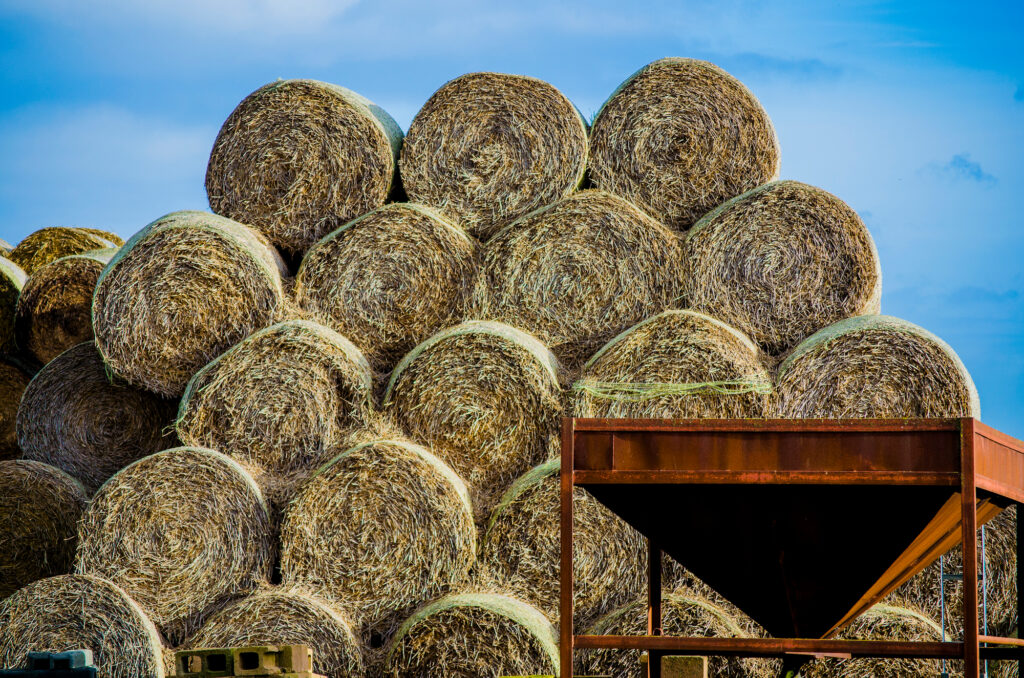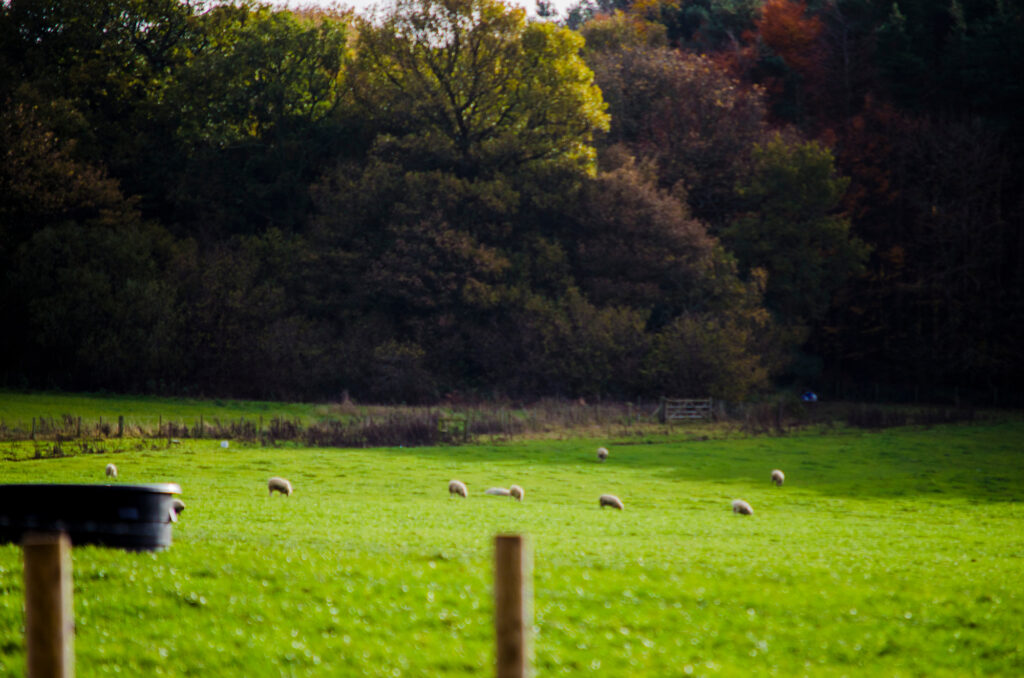Agriculture is a vast and vital industry that provides livelihoods for hundreds of millions and food for billions across our planet. Similar to other sectors, however, agriculture’s expansion and industrialisation have increased its impact on the environment to unsustainable levels (Alam and Rukhsana, 2023), especially regarding greenhouse gas emissions and the biodiversity crisis. As a result, work is now crucially needed to adopt new technologies and alternative practices to ensure that the world’s five billion hectares of farmland can store carbon and provide quality habitats as well as feeding us. To get an idea of the challenges facing sustainable agriculture and how they might be overcome, I’ve spoken to researchers from Newcastle University’s own School of Natural and Environmental Sciences.

Sustainability challenges
Implementing sustainable practices into farming is a complicated and difficult process for a variety of reasons. Postgraduate researcher Sophia Long points to cost, and a lack of resources, technology, education, and training as key concerns that are affecting different farms in different ways and slowing down agriculture’s progress towards sustainable practice. Additionally, she notes that many sustainable innovations, including novel machinery and new chemistry and crop varieties, require an adjustment period to be implemented, further delaying change.
Despite these challenges, however, there is optimism in the sector and Dr David George, a reader in Precision Agronomy here at the University, referred to the recent updates to the Sustainable Farming Incentive as a key element of this positivity. On top of this, the development of carbon and biodiversity markets, inclusion of sustainable best practice as a feature of trade shows and magazines, and recognition of the importance of sustainable management by farmers themselves are all good signs of an improving outlook for sustainable agriculture.
Research and innovations
Newcastle University has a variety of innovative facilities focused on agricultural production, teaching, and research and this infrastructure is being used to develop the skills, technologies, and practices needed to support agriculture’s transition towards sustainability. These specialist facilities include Newcastle University Farms (NU Farms), which hold around 800 hectares of land spread over three sites (Nafferton, Ouston, and Cockle Park), and a series of vertical farm units, growth room facilities, and a food and consumer research facility on central campus. Some of the sustainable innovations, highlighted by Sophia and David, that are currently being developed at these sites include:
- The development of automated systems and disease sensors in the Vertical Farm units to reduce the need for fertiliser, transport, and water when producing crops whilst improving their quality.
- Research on the soil microbiome to improve the sustainability of disease management through the development of novel cultural and chemical control plans.
- Trials of different tillage practices at NU Farms, including ploughing, minimum-tillage, and direct-drilling, to gather data on crop performance and carbon release (from the soil) for each of these practices.
- Spore sampling technology, which is being explored at NU Farms in conjunction with biopesticides and biostimulants to reduce the use of conventional synthetic chemistry and thereby improve crop health and slow the build-up of pesticide resistance.
- Scattering silicate rock dust over crop fields for their ability to enhance carbon and nutrient capture in the soil, both sequestering greenhouse gases and improving crop growth (Skov et al. 2024).
- Remote imaging and sensing for pest/disease detection and environmental monitoring to help boost soil, crop, and animal health. This technology could be used in conjunction with the increasingly precise and automated application of crop inputs, which is also being researched at our university.
- Methods to engage farmers in overcoming barriers to ‘Regenerative Agriculture‘ in the north of England through machinery solutions.

The future of farming
Sustainability is increasingly becoming the focus of agriculture’s future (Onuabuchi Munonye and Chinelo Eze, 2022) and a range of new technologies are lining up to support this. Across the Agriculture department, NU Farms, and the researchers I spoke to, however, it was stressed that co-benefits must be at the heart of change to ensure that the future of agriculture is truly sustainable. Specifically, change in the agricultural sector must support farmers’ incomes and resilience as well as the natural environment. Here, four key areas are central to a holistically sustainable future for farming:
- Technology: Drones and sensors for data, automated and precision machinery, new crop inputs, land use practices, and further technologies are all improving the efficiency and reducing the environmental impacts of crop and livestock rearing for each unique farm.
- Biodiversity: Research, education, and stewardship schemes are helping farmers to support and improve the agroecological systems on their land, yielding enhanced natural pest control and soil fertility and combatting pesticide and fertiliser use.
- Adaptation: Changes in pest, disease, and extreme/unseasonal weather stresses will force farmers to adapt their crop rotations and water, disease, and pest management practices. Here, plant breeding, education, and community engagement will all be vital tools to pre-emptively future-proof agricultural production against the impacts of climate change.
- Income: Many farms here in the UK are under intense financial pressure and even being forced out of business, harming livelihoods, rural culture and knowledge, and impacting the UK’s food security and resilience. Produce prices must reflect the tenuous financial situation for farmers and more transparency from distributors (such as supermarkets) would help consumers to gain a more well-rounded view of the food system they rely upon.
Overall, Dr George summarises the features of a sustainable future for farming as a “good balance of environmental, animal welfare and food production outputs that co-delivers for natural capital gain / net zero and food security, supported by simple yet flexible policy and clear, connected, consolidated and collaborative knowledge sharing”.
A huge thank you to Sophia, David, and everyone else who offered their time and expertise for this piece. If you want to find out more about sustainable agriculture then have a look at the links and references below and you can learn about biodiversity on campus here. Finally, if you’re looking for updates about sustainability at our university, you can sign up to the Sustainability Network.
Links and references
Regenerative agriculture initiative funded by Newcastle University
Press Office article on enhanced rock weathering
Alam, A., and Rukhsana (2023) ‘Climate Change Impact, Agriculture, and Society: An Overview’. Alam. A., and Rukhsana (eds) Climate Change, Agriculture and Society: Approaches Toward Sustainability. Cham, Switzerland: Springer International Publishing. https://link.springer.com/book/10.1007/978-3-031-28251-5
Onuabuchi Munonye, J., and Chinelo Eze, G. (2022) ‘The Concept of Sustainable Agriculture’. Filho, W. L., Kovaleva, M., and Popkova, E. (eds) Sustainable Agriculture and Food Security. Cham, Switzerland: Springer International Publishing. https://link.springer.com/book/10.1007/978-3-030-98617-9
Skov, K., Wardman, J., Healey, M., McBride, A., Bierowiec, T., Cooper, J., Edeh, I., George, D., Kelland, M. E., Mann, J., Manning, D., Murphy, M. J., Pape, R., Teh, Y. A., Turner, W., Wade, P., and Liu, X. (2024). Initial agronomic benefits of enhanced weathering using basalt: A study of spring oat in a temperate climate. PLOS ONE, 19 (3). https://doi.org/10.1371/journal.pone.0295031
